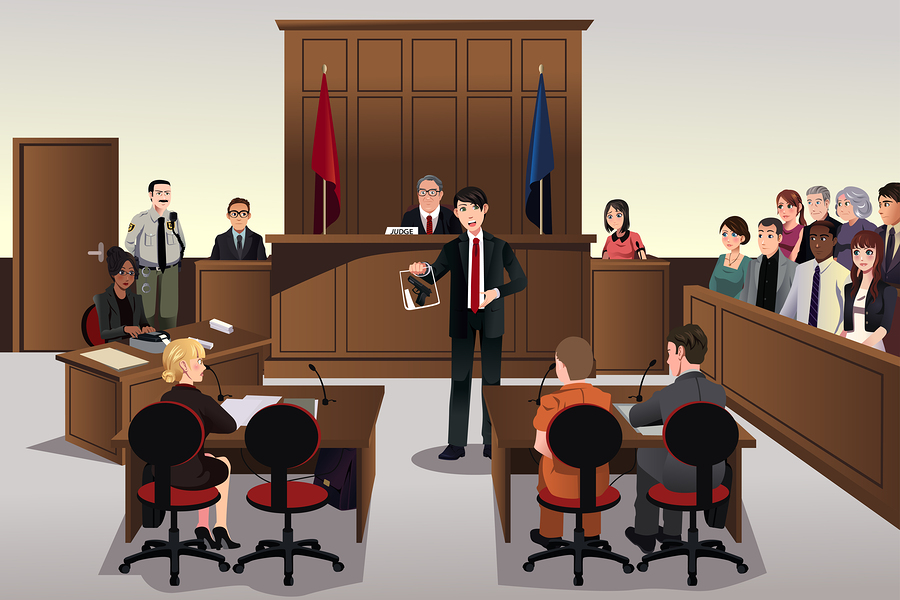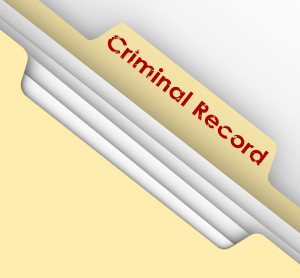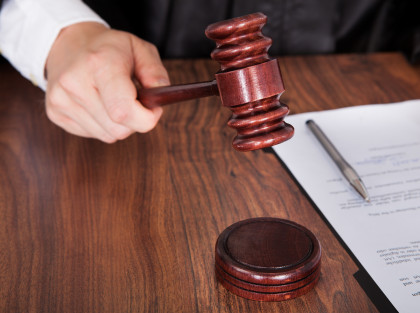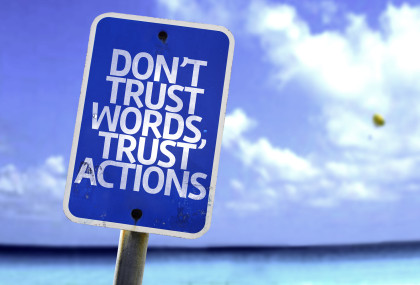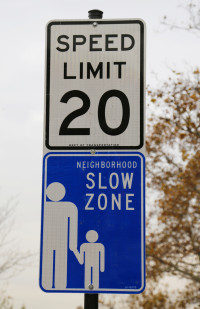 TALKING TO THE POLICE CANNOT HELP YOU.
TALKING TO THE POLICE CANNOT HELP YOU.
If the police are talking to you, it’s because they suspect you have committed a crime. Often law enforcement personnel start by saying they do not actually suspect you. That they are looking at someone else for the crime. They just want some information from you. Remember if the police lie to you– this does not protect you from the statements you make.
Anything you say can be used against you even if you think it has nothing to do with the criminal case being discussed.
Any admission might be used later on to put you or someone you care about, at the scene, with someone like a co-defendant or co-conspirator, and would be one less thing the prosecution would have to prove. You will hand them what they need on a silver platter. Even if you are innocent, and you only tell the truth, and you don’t tell any little white lies, it is possible to give the police some detail of information that can be used to convict you.
The benefit to having an experienced attorney represent you is that your response is “please contact my attorney”-then say nothing else. Most people look to hire a lawyer after they have been arrested and charged with a crime.
But if you are being investigated for a crime, having a lawyer can sometimes prevent you from ever being charged with a crime at all.
WHAT IF THEY THREATEN TO THROW ME IN JAIL.
Remember, you are never obligated to talk to the police. But they may keep calling if they want to question you, for whatever reason.
They can come to your home, or your work and the continuous requests and contacts they make can be quite threatening and intimidating. They are calling to you gather evidence for a case, very possibly against you.
Don’t talk to them even if they threaten to put you in jail if you don’t talk with them. If they have detained you, it’s because they already have enough evidence to arrest you and want to see if you will make some kind of admission and thus, give them an even stronger case against you. Seldom is confessing or giving law enforcement a stronger case a good way to stay out of jail.
Be wary, even if successful in staying out jail for a day your statement could ultimately land you in jail for years.
For some reason so many people think they are savvy enough or eloquent enough or well educated enough to be able to talk to the police and convince them not to arrest them. You are not smarter than the police. No one ever talked his way out of an arrest—and you prove this if you talk to them without representation.
EVEN IF YOU ARE GUILTY AND WANT TO CONFESS AND GET IT OFF YOUR CHEST..DON’T TALK TO THE POLICE.
People plead guilty every day. There is plenty of time to confess and admit guilt at a later stage of the proceedings. What’s the rush? Get a lawyer first. Let the lawyer set up a deal whereby you get something in exchange for accepting responsibility for the offense. A better plea bargain, or maybe even immunity. If you confess to the police, you get nothing in return. Zero. In fact, you probably get a harsher prosecution because the state’s case is now airtight, now that you have confessed.
EVEN THE INNOCENT CAN GET CAUGHT IN A LIE. THERE ARE NO GUARANTEES OF AN ACCURATE ACCOUNT OF YOUR STATEMENT BY POLICE.
But no matter what you say, anything could be misconstrued, misinterpreted, or otherwise used against you. There is no Miranda in effect if the police are just talking to you, and you aren’t under arrest. And even then, Miranda does not offer the protections most people think it does.
Police can take what you say out of context, and deliberately or accidentally misunderstand your statement, and turn it around against you. If you don’t talk to the police, they won’t have anything they can say about you.
A person who is completely innocent and asserting their innocence can simply deny some insignificant fact, tell some little white lie or simply make an inadvertent mistake of fact in their effort to sound as innocent as possible. But if the police have evidence that you claimed something that was not true it makes your entire statement look like a lie. Can’t you see it now….just like on TV the prosecutor will ask:“Why did he lie to the police? Why indeed would he lie to the police, unless he were guilty?” Your credibility is now shot.
What if the police officer remembers something wrong? What if he remembers you said “X” when actually you said “Y”? If the police officer takes the witness stand and contradicts your statements at trial, it will also destroy your credibility. You can take the witness stand and say “I never said that!” But it’s your word versus a police officer. Who’s the jury going to believe?
IT IS NEARLY IMPOSSILBE TO TELL THE SAME STORY TWICE EXACTLY THE SAME WAY EVEN IF YOU ARE HONEST AND INNOCENT.
If you tell your story one time at trial and you tell the truth and you’re innocent, there’s very little the prosecutor can do by way of cross examination. But if you’ve told your story twice, once at trial, and once previously in a statement to the police, many months apart, the chances are very high that, even if you are telling the truth, some little details in your statement are going to change.
A good cross examiner will pick up on these changes and will relentlessly question you about them in an effort to make it look like you are lying.
THE POLICE DO NOT HAVE THE AUTHORITY TO MAKE DEALS OR GRANT LENIENCY.
People say all the time that they gave a statement to the police because the police told them that they would be better off if they confessed, better off if they admitted what they did wrong, better off if they cooperated. The police will make vague statements that things will go easier on the suspect if he simply admits what he did wrong. The police will also make vague statements suggesting that they will do what they can to help the suspect, that they will put in a good word for the suspect, if the suspect will just come clean. Yes, they can mislead you and what you say can still be held against you.
So remember the police do not have authority to make deals, grant immunity, or negotiate plea agreements without the direct authority of the District Attorney or US Attorney (in Federal Court). Despite the impression that the police are helping you, they are actually helping themselves.
CAN YOU REALLY PREVENT A CRIMINAL CHARGE?
Not in every case, but absolutely, it often works out that way. If the police simply don’t get enough evidence, then they can’t charge anyone. The case will die.
And if you do still get charged, it was almost certainly going to happen anyway and was not avoidable. So we move on to other defenses and ways to beat the case.
ve committed a crime. Often law enforcement personnel start by saying they do not actually suspect you. That they are looking at someone else for the crime. They just want some information from you. Remember if the police lie to you– this does not protect you from the statements you make. Do not talk to police.
Anything you say can be used against you even if you think it has nothing to do with the criminal case being discussed.
Any admission might be used later on to put you or someone you care about, at the scene, with someone like a co-defendant or co-conspirator, and would be one less thing the prosecution would have to prove. You will hand them what they need on a silver platter. Even if you are innocent, and you only tell the truth, and you don’t tell any little white lies, it is possible to give the police some detail of information that can be used to convict you.
The benefit to having an experienced attorney represent you is that your response is “please contact my attorney”-then say nothing else. Most people look to hire a lawyer after they have been arrested and charged with a crime.
But if you are being investigated for a crime, having a lawyer can sometimes prevent you from ever being charged with a crime at all.
WHAT IF THEY THREATEN TO THROW ME IN JAIL.
Remember, you are never obligated to talk to police. But they may keep calling if they want to question you, for whatever reason.
They can come to your home, or your work and the continuous requests and contacts they make can be quite threatening and intimidating. They are calling to you gather evidence for a case, very possibly against you.
Don’t talk to them even if they threaten to put you in jail if you don’t talk with them. If they have detained you, it’s because they already have enough evidence to arrest you and want to see if you will make some kind of admission and thus, give them an even stronger case against you. Seldom is confessing or giving law enforcement a stronger case a good way to stay out of jail.
Be wary, even if successful in staying out jail for a day your statement could ultimately land you in jail for years.
For some reason so many people think they are savvy enough or eloquent enough or well educated enough to be able to talk to the police and convince them not to arrest them. You are not smarter than the police. No one ever talked his way out of an arrest—and you prove this if you talk to them without representation.
EVEN IF YOU ARE GUILTY AND WANT TO CONFESS AND GET IT OFF YOUR CHEST..DON’T TALK TO THE POLICE.
People plead guilty every day. There is plenty of time to confess and admit guilt at a later stage of the proceedings. What’s the rush? Get a lawyer first. Let the lawyer set up a deal whereby you get something in exchange for accepting responsibility for the offense. A better plea bargain, or maybe even immunity. If you confess to the police, you get nothing in return. Zero. In fact, you probably get a harsher prosecution because the state’s case is now airtight, now that you have confessed.
EVEN THE INNOCENT CAN GET CAUGHT IN A LIE. THERE ARE NO GUARANTEES OF AN ACCURATE ACCOUNT OF YOUR STATEMENT BY POLICE.
But no matter what you say, anything could be misconstrued, misinterpreted, or otherwise used against you. There is no Miranda in effect if the police are just talking to you, and you aren’t under arrest. And even then, Miranda does not offer the protections most people think it does.
Police can take what you say out of context, and deliberately or accidentally misunderstand your statement, and turn it around against you. If you don’t talk to the police, they won’t have anything they can say about you.
A person who is completely innocent and asserting their innocence can simply deny some insignificant fact, tell some little white lie or simply make an inadvertent mistake of fact in their effort to sound as innocent as possible. But if the police have evidence that you claimed something that was not true it makes your entire statement look like a lie. Can’t you see it now….just like on TV the prosecutor will ask:“Why did he lie to the police? Why indeed would he lie to the police, unless he were guilty?” Your credibility is now shot.
What if the police officer remembers something wrong? What if he remembers you said “X” when actually you said “Y”? If the police officer takes the witness stand and contradicts your statements at trial, it will also destroy your credibility. You can take the witness stand and say “I never said that!” But it’s your word versus a police officer. Who’s the jury going to believe?
IT IS NEARLY IMPOSSILBE TO TELL THE SAME STORY TWICE EXACTLY THE SAME WAY EVEN IF YOU ARE HONEST AND INNOCENT.
If you tell your story one time at trial and you tell the truth and you’re innocent, there’s very little the prosecutor can do by way of cross examination. But if you’ve told your story twice, once at trial, and once previously in a statement to the police, many months apart, the chances are very high that, even if you are telling the truth, some little details in your statement are going to change.
A good cross examiner will pick up on these changes and will relentlessly question you about them in an effort to make it look like you are lying.
THE POLICE DO NOT HAVE THE AUTHORITY TO MAKE DEALS OR GRANT LENIENCY.
People say all the time that they gave a statement to the police because the police told them that they would be better off if they confessed, better off if they admitted what they did wrong, better off if they cooperated. The police will make vague statements that things will go easier on the suspect if he simply admits what he did wrong. The police will also make vague statements suggesting that they will do what they can to help the suspect, that they will put in a good word for the suspect, if the suspect will just come clean. Yes, they can mislead you and what you say can still be held against you.
So remember the police do not have authority to make deals, grant immunity, or negotiate plea agreements without the direct authority of the District Attorney or US Attorney (in Federal Court). Despite the impression that the police are helping you, they are actually helping themselves.
CAN YOU REALLY PREVENT A CRIMINAL CHARGE?
Not in every case, but absolutely, it often works out that way. If the police simply don’t get enough evidence, then they can’t charge anyone. The case will die.
And if you do still get charged, it was almost certainly going to happen anyway and was not avoidable. So we move on to other defenses and ways to beat the case.
Contact William Balduf, Esq. and let his 30 years of experience work for you. Serving Syracuse and Oswego, New York.
See related articles:
How Do I Post Bail?
 WHAT IS OXYCODONE, AND WHAT HAPPENS IF I’M CAUGHT WITH IT?
WHAT IS OXYCODONE, AND WHAT HAPPENS IF I’M CAUGHT WITH IT?

